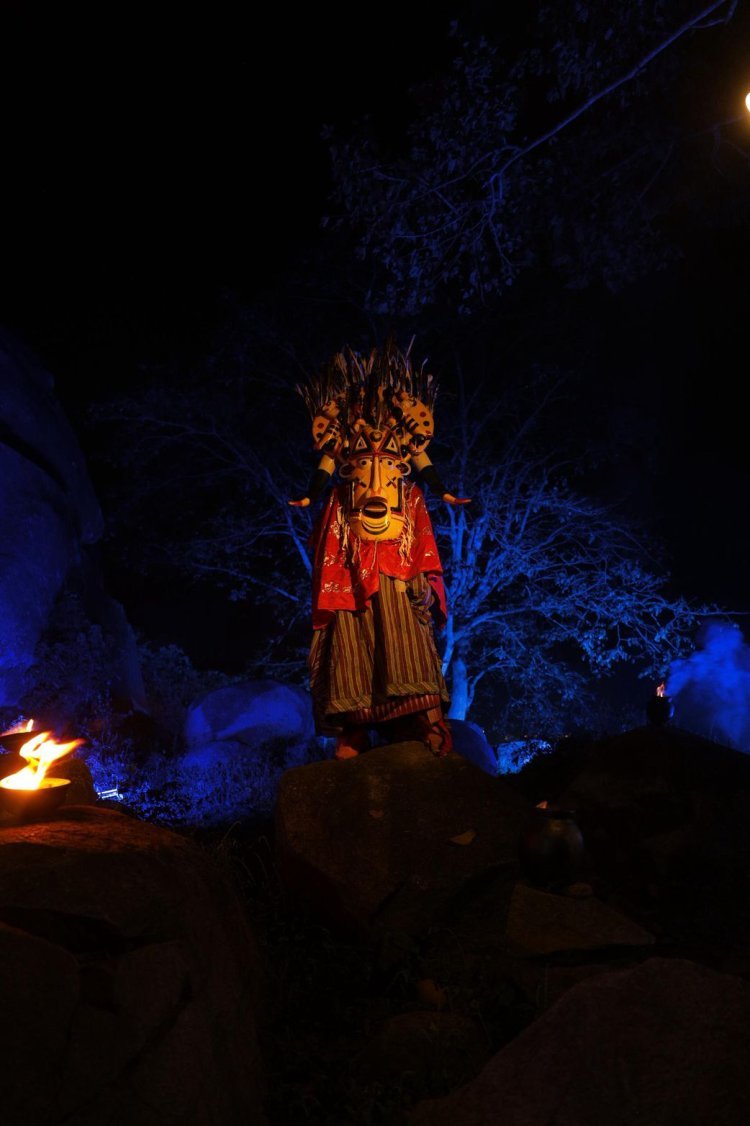Ace Nigerian filmmaker Moshood Abiola Obatula has carved a unique niche in African cinema, and his latest film Agemo is yet another testament to his bold storytelling and artistic finesse. Over the course of four months, Obatula poured his vision and craft into creating a cinematic experience that transcends typical genre conventions. Blending supernatural elements with deeply rooted cultural and emotional themes, Agemo is more than just a film — it is a poignant exploration of womanhood, resilience, and the consequences of spiritual imbalance.
Set in a layered world where the lines between the living and the spiritual realms blur, Agemo captures a powerful narrative that challenges viewers to reflect on the intersections between tradition, identity, and the enduring strength of women. Drawing from indigenous Yoruba mythology and contemporary realities, Obatula constructs a narrative that is both intimate and epic in scope. At its core, the film focuses on a female protagonist grappling with both societal expectations and supernatural forces, using her personal struggles as a vessel to question and celebrate the power of femininity in African cosmology.
What makes Agemo especially compelling is its thematic richness. Rather than rely solely on visual spectacle — though the film boasts a high-caliber production aesthetic — Obatula prioritizes storytelling, character development, and emotional authenticity. The supernatural elements are not just for thrill or drama; they serve a higher symbolic purpose, reflecting the burdens and transformations that women undergo in both real and metaphysical dimensions. The film also poses essential questions about intergenerational trauma, spiritual heritage, and the modern African woman’s struggle to balance tradition with autonomy.
These themes have not gone unnoticed on both local and international stages. Agemo has already gained significant recognition across various respected film festivals. Notably, it received a nomination at the 13th African International Film Festival (AFRIFF), one of Africa’s premier platforms for showcasing innovative cinematic talent. AFRIFF's recognition is particularly significant, as the festival has a track record of honoring films that push creative and cultural boundaries.
Additionally, Agemo earned a spot at the Toronto International Nollywood Film Festival, a globally recognized event that celebrates African storytelling in diaspora contexts. This nomination signals the film’s appeal to broader audiences, particularly within the African diaspora seeking authentic yet imaginative narratives that reflect their heritage. Obatula’s ability to make a culturally rooted story resonate on a global stage is a reflection of both his directorial maturity and the universal themes embedded within Agemo.

The film’s impressive run doesn’t end there. It has also been nominated at the 11th Africa Magic Viewers' Choice Awards (AMVCA), one of the most prestigious awards in African television and film. This nomination places Agemo among the continent’s elite cinematic projects for the year, showcasing its technical brilliance, narrative depth, and cultural significance.
Further cementing its global footprint, Agemo has been recognized at the 2024 Amsterdam International Awards, a key European platform that celebrates global cinema with unique cultural voices. That Agemo stands out in such a diverse and competitive field speaks volumes about its international relevance and the growing appetite for African supernatural dramas told with sophistication and nuance. In many ways, Agemo represents a broader movement in African cinema — one that embraces genre experimentation without losing cultural specificity. It challenges the dominance of Western narrative tropes in supernatural storytelling, offering instead a distinctly African worldview where spirits, ancestors, and destiny are active agents in human lives.
In a cinematic landscape increasingly dominated by spectacle, Agemo reminds us of the power of storytelling that honors both tradition and innovation. And for Moshood Abiola Obatula, this film marks not just another milestone, but a defining moment in a brilliant and still-evolving career.

